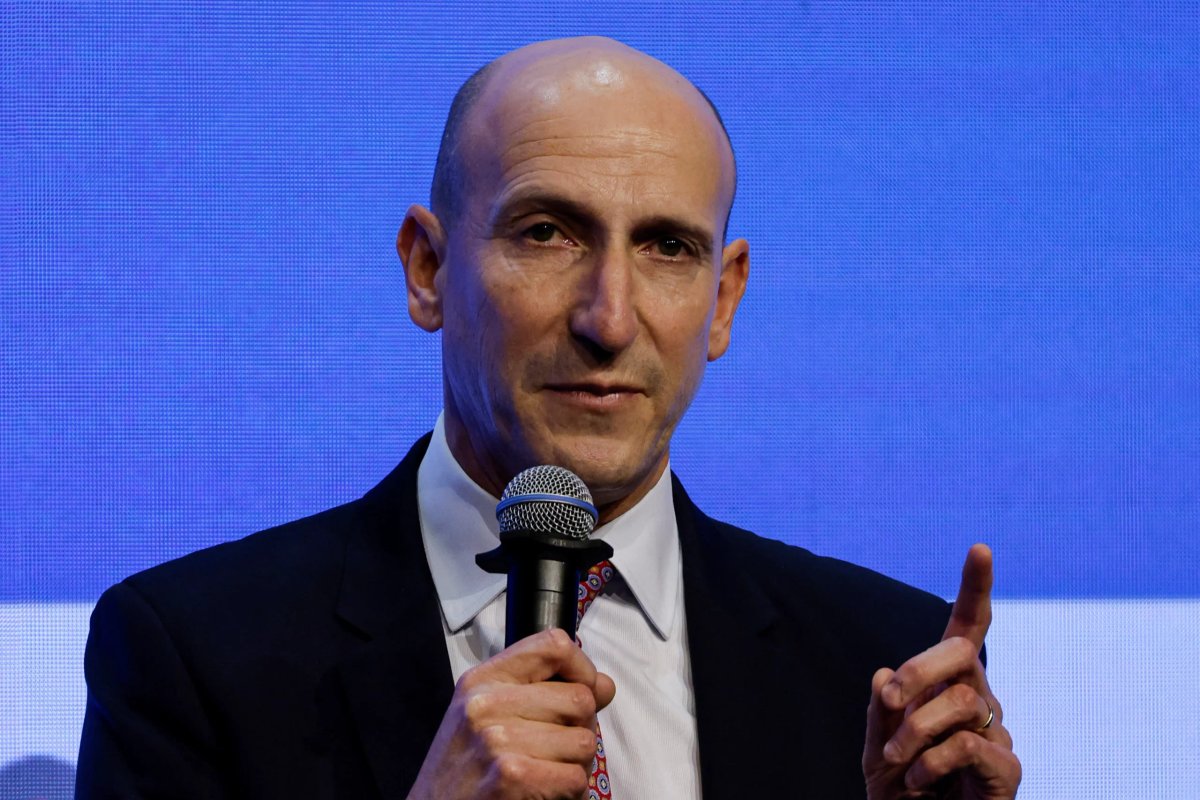Exclusive-Capital Group shakes up strategy to hit $4 trillion by 2031


By Iain Withers
LONDON (Reuters) – Capital Group aims to grow its fixed income business, accelerate overseas expansion and diversify away from its core equities franchise to stem client withdrawals and compete with faster-growing fund rivals, its CEO Mike Gitlin told Reuters.
Over its 93 years, Los Angeles-based Capital has built the world’s largest active fund firm, including the giant ‘American Funds’ range. It now manages assets totalling $2.6 trillion, but seldom publicly shares insight into its investing.
Capital expects to grow assets by more than half over the next seven years to around $4 trillion, Gitlin said.
Decisions by privately-owned Capital, whose scale makes it a top ten shareholder in companies including Microsoft, Meta Platforms and General Electric, can move markets and sometimes hold considerable sway over corporate strategies.
Gitlin unveiled Capital’s priorities to 9,000 staff from its new international hub in west London on Tuesday, as a boom in passive and private investing forces a change of tack.
Assets in passive funds topped those in active ones for the first time in the U.S. last year, Morningstar data shows, and Capital has endured five straight years of net outflows from its U.S. equity funds, while the U.S. business as a whole has seen more than $100 billion withdrawn across 2022 and 2023.
And while major rivals including JP Morgan and BlackRock reported big inflows last year, Capital struggled.
Gitlin’s $4 trillion aim implies a slower growth rate than Capital achieved the prior seven years, when it expanded from $1.5 trillion as outflows left it dependent on rising asset prices for expansion.
U.S.-based clients still account for more than 97% of Capital’s assets and equities for four-fifths of that, but Gitlin wants that to change with a strategy to take it to 2031, which coincides with 100 years since the firm’s founding.
“Europe and Asia are absolutely critical to our future,” said Gitlin, who has been devising the strategy since becoming CEO in October. A new office in Miami will also target offshore clients in Latin America, which he said has “really taken off”.
Capital has a multi-portfolio manager approach known as ‘The Capital System’, where management of funds is split between people, who can each take differing positions.
Staff – who are often referred to internally by four letters that loosely approximate their names – are incentivised to remain at Capital, with an average tenure of 10.3 years.
Analysts and rival investors say Capital has a formidable reputation for long-term investing, but has been slow to react to a changing market. Capital announced a private markets tie-up with KKR and launched its first sustainability funds this year.
“This is an old school firm that does things very thoughtfully, which takes a lot of time,” said Stephen Welch, senior analyst at Morningstar.
One rival, who declined to be named, said this long term approach set it apart, but it had fallen behind in some areas.
“I wouldn’t confuse methodical with slow,” Gitlin said of Capital’s approach.
Fixed income is at the heart of its revamped approach, and central bank rate cuts could ramp up its growth. Assets in its bonds business, which Gitlin previously led, have already grown nearly 40% in four years to $507 billion, according to Capital data.
“There’s $2-3 trillion that will start heading into active bond markets once you start getting interest rate cuts,” Gitlin said, adding he expected the Federal Reserve to follow Europe’s lead and cut this year.
Capital’s current 80:20 split between equity and bond assets is likely to shift as far as 70:30 by 2031, he added.
Overseas client assets currently account for $70 billion, but that should more than double to around $175 billion by 2031, Gitlin said at Capital’s 11-storey office block.
The building in Paddington was designed by Renzo Piano, the architect behind London’s Shard skyscraper, and has space for around 1,100 staff, double current UK headcount.
Capital executives who spoke to Reuters acknowledge client demands are changing and that means entering new terrain – offering passive or private funds, albeit via partnerships with other fund firms, initially in the U.S.
The decision to partner with KKR took two years.
Capital said a late foray into actively-managed exchange-traded-funds (ETFs) in 2022 have amassed $28 billion in assets.
“If you take a long term view, you don’t really worry about the six month sales, or even the one year sales, you think about the 10, 20, 30 year option,” said Guy Henriques, president of the firm’s Europe and Asia-Pacific client group.
“We’re OK with being seen as not reacting very quickly.”
(Reporting by Iain Withers; Additional reporting by Davide Barbuscia in New York; Editing by Tommy Reggiori Wilkes and Alexander Smith)
Fixed income refers to investment types that provide returns in the form of regular, fixed payments and the eventual return of principal at maturity. Common examples include bonds and treasury bills.
Investment funds pool money from multiple investors to purchase securities. They can include mutual funds, hedge funds, and exchange-traded funds (ETFs), allowing for diversified investment.
Asset management is the process of managing investments on behalf of clients, including individuals and institutions, to achieve specific financial goals.
Corporate strategy refers to the overall plan for a company to achieve its goals and objectives, including decisions on resource allocation, market positioning, and growth initiatives.
International expansion is the process of a company entering new markets outside its home country to increase its customer base and revenue opportunities.
Explore more articles in the Top Stories category











